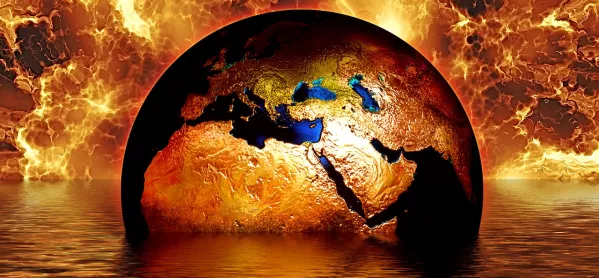It’s the Friday before half-term. But what today holds for some pupils is a bit different to the usual end of unit wrap-up lesson or a final pre half-term test. Today, thousands of young people will join the UK Youth Strike 4 Climate.
Following the advocacy of Swedish teenage activist Greta Thunberg, in a parallel to how climate change disregards national borders, these strikes have spread across the globe from Belgium to Switzerland, Germany, the US, Canada, Japan, Australia and now arrived in the UK.
Having recovered from the disruption of February’s recent snow days, our headteachers now face the difficult decision of whether or not their pupils’ potential strike absences are authorised. The Department for Education has highlighted that it is for heads to make these decisions locally.
This issue has already thrown up significant potential for an intergenerational divide with the debates straddling passion or reason, urgency or responsibility and activism or learning. It has also already claimed the career of Joke Schauvliege, a Belgian environment minister.
Indeed, the science of climate coincidently parallels the generation gap, with the internationally recognised measure of climate being a 30-year rolling average of temperature and precipitation. It is this average that provides the basis of what we "expect" – our climate, rather than our weather, what we "get" on a daily basis. So if the the sun makes an appearance today, which is the Met Office’s current forecast, it will neither prove nor disprove the long term changes to our climate.
One of the demands of the strike is that the education system is reformed "so that it portrays the ecological crisis in lessons and pupils learn about it more".
Geography teachers will rightly point to the unequivocal requirements within the geography national curriculum and its GCSE and A level specifications that pupils learn about our climate and how it has changed – alongside wider environmental and ecological issues. This includes learning about the evidence for climate change since the last ice age (roughly 2 million years ago) to the present, the role of humans within this and how changes to our landscapes are the result of processes driven by past, present and future climate changes.
By spanning the natural and social sciences, geography provides a unique context for pupils to explore both the science of a changing climate and how societies might mitigate against and adapt to its impacts. Such geographical knowledge is essential if young people are to become better informed, able to understand the complexities of climate change and consider alternative futures.
Indeed, Nick Crane – presenter of BBC Coast and the former president of the Royal Geographical Society – has rightly identified how geography "gives us the science, the data and the insights to plan for the future.’ With 250,000 GCSE and 35,000 A Level annual entries, geography is ensuring that even more young people are able to understand this important issue.
Climate change will not be solved on one Friday afternoon and the actions or views of young people or older generations do not have the sole preserve of virtue.
So, in this swirling debate, which spans potential truancy to "authorised" activism, we do need to recognise the centrally important power of education and how this helps young people to explore the present and be prepared for the future.
As the geographer Dr Alex Standish has highlighted: ‘Teaching children about the world (through geography) is an important prerequisite to the inheritance of political responsibility."
Greta Thunberg has argued that "you don’t have to school strike, it’s your own choice". Beyond this, we should be reassured that the requirement to learn about and understand climate change isn’t a choice; but rather it holds a central place in our young peoples’ geographical education.
Steve Brace is the head of education at the Royal Geographical Society




